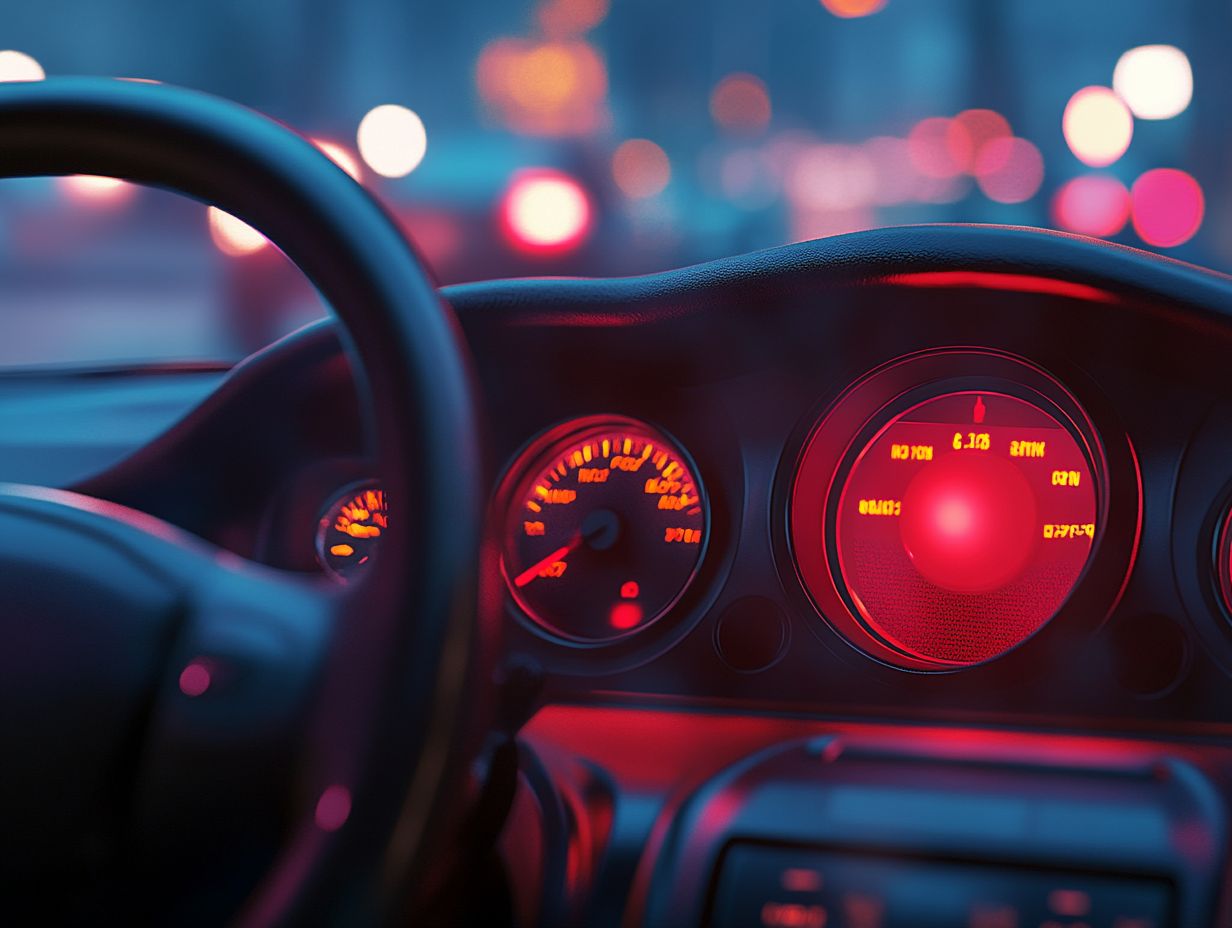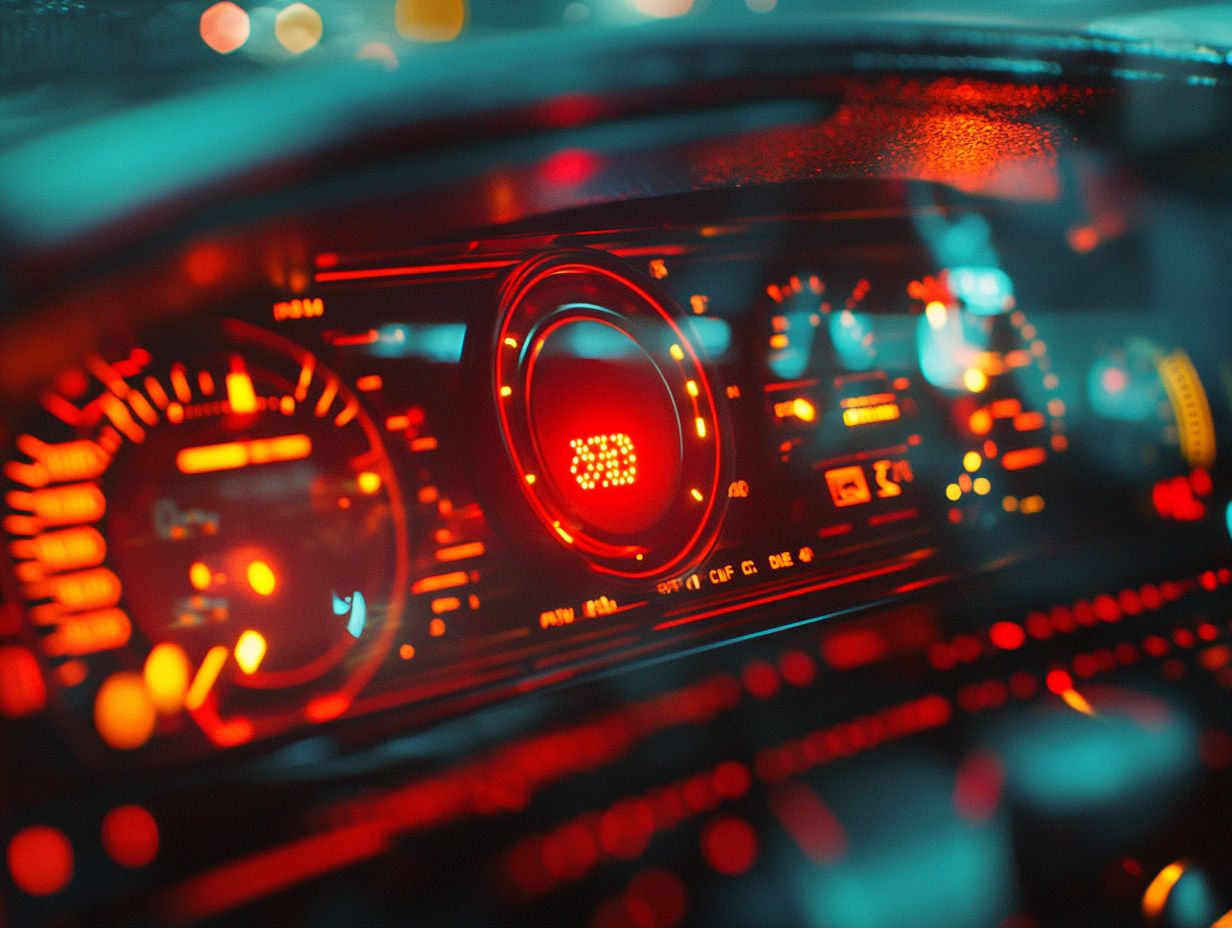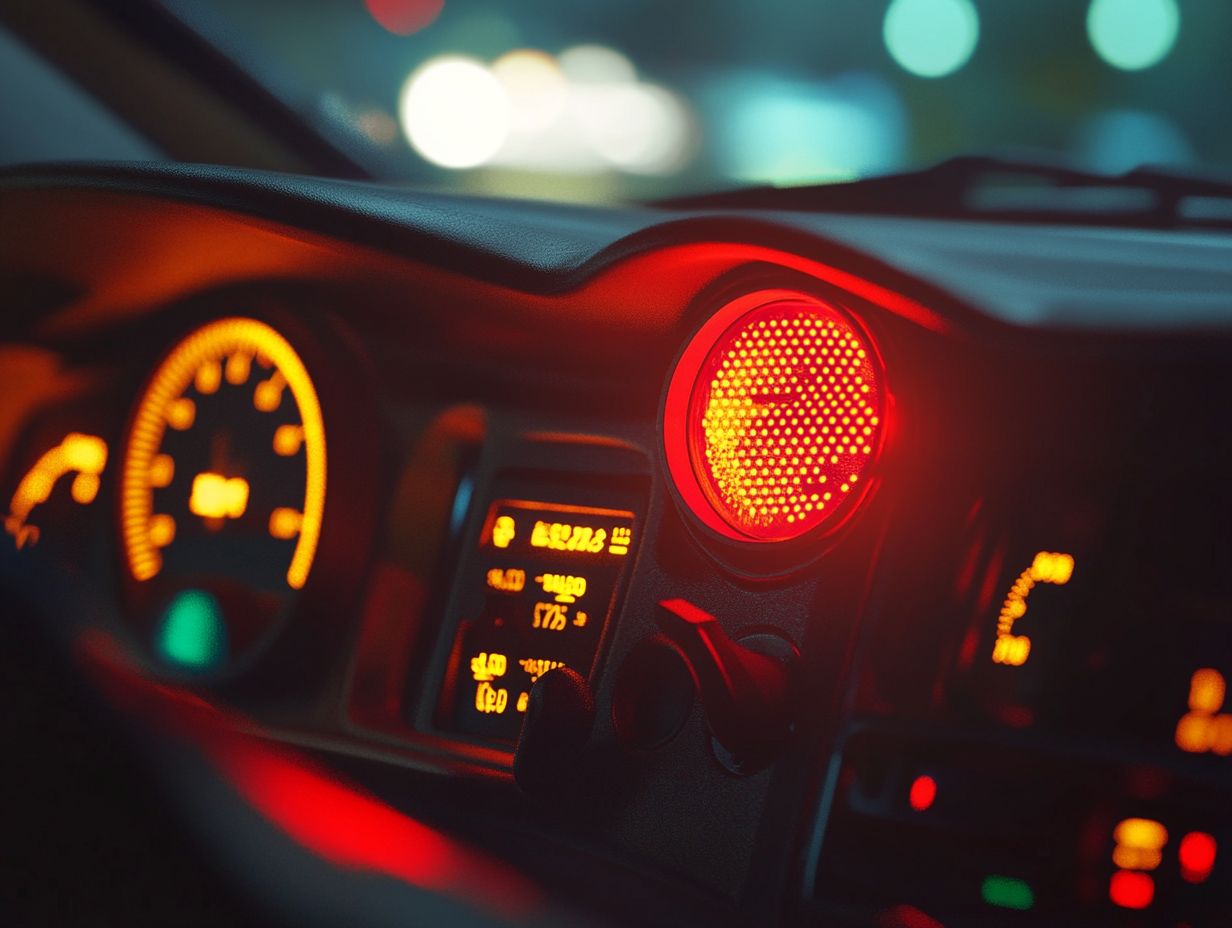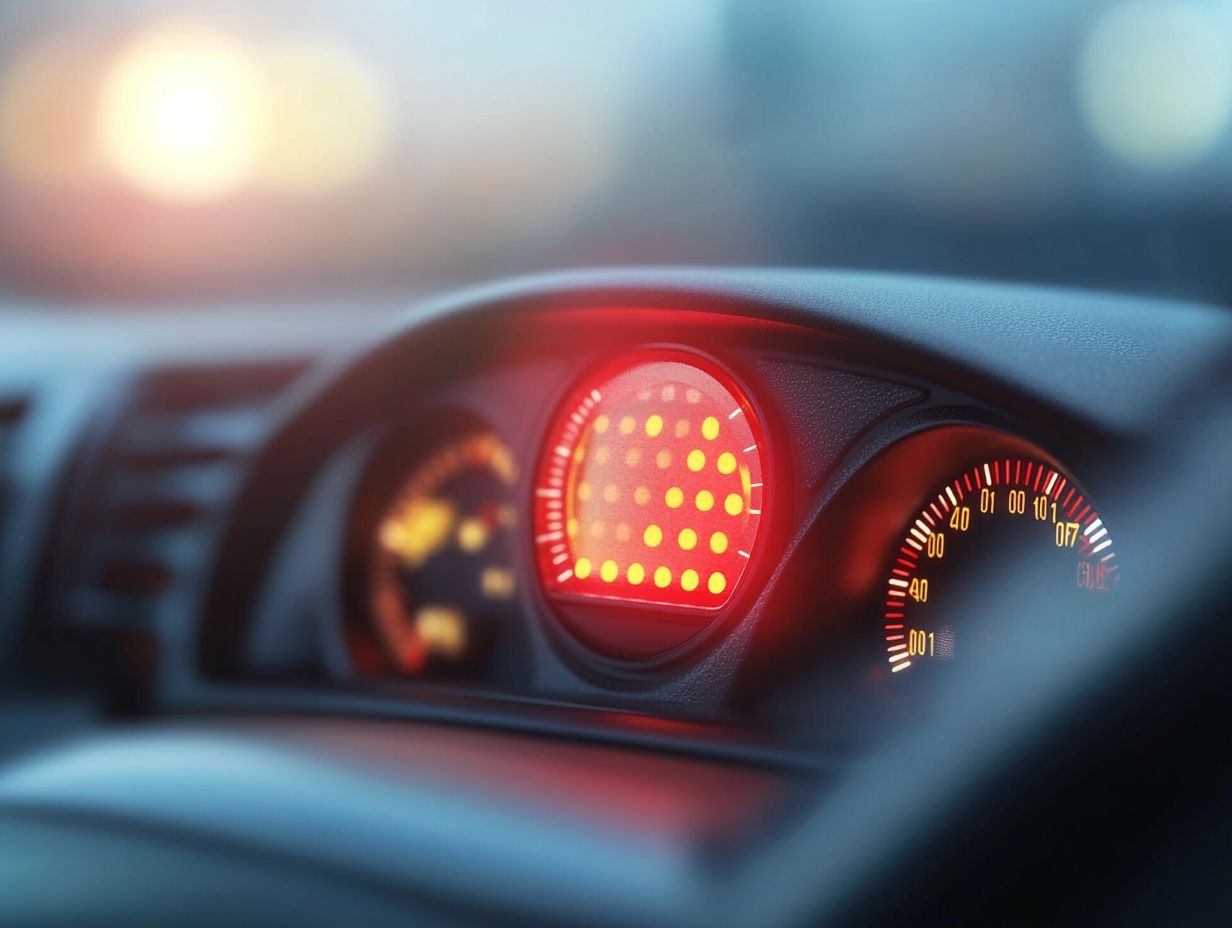Why Your Check Engine Light Went On Then Off After a Week
Have you ever felt that annoying frustration when your check engine light comes on, only to vanish a week later? It’s such a common situation that leaves so many of us scratching our heads.
I’m diving into what the check engine light really means and going over the usual suspects that trigger it. I’ll also look at why it sometimes turns off, when you should start to worry, and how to tackle any underlying problems—whether that means rolling up your sleeves for some DIY troubleshooting or knowing when it’s time to call in a mechanic.
Getting a handle on this important warning signal can definitely save you time, money, and a whole lot of unnecessary stress.
Understanding the Check Engine Light

The check engine light is one of those dashboard warnings I pay close attention to because it means something might be off with my vehicle. Whether it’s an issue with the engine performance, fuel system, or even the electrical components, this little light can have big implications for my car’s health and reliability.
Ignoring it could lead to even bigger problems down the road, so it’s super important for me to understand what that check engine light really means and how to deal with it. Let’s take a closer look at the common triggers and key points about this automotive warning signal.
What Does it Mean?
When my check engine light pops on, it usually means that my vehicle’s engine control module (ECM) has spotted something funky going on under the hood.
This warning is definitely a heads-up for any car owner—it’s like a little reminder that there could be anything from a tiny issue, like a loose gas cap, to something more serious that might impact my car’s performance or safety. Understanding what the check engine light really means is important because it opens the door to trouble codes that can shed light on what’s going wrong.
By using a diagnostics tool, I can dig up these codes and figure out what the actual problems are. After that, it’s crucial to hit up a professional for car repairs because tackling these issues sooner rather than later can save my engine—and my wallet—from further damage.
Common Triggers
The check engine light can pop up for a bunch of reasons, from something as simple as a loose gas cap to more complex issues like a faulty sensor or a failing fuel system.
One of the usual suspects is an oxygen sensor malfunction, which can really mess with my fuel efficiency and emissions. Then there are catalytic converter problems that can lead to higher pollution levels. I’ve also noticed that loose or damaged vacuum hoses can throw off the air-fuel mixture, causing my car’s onboard diagnostics to raise a red flag. Even a worn-out ignition coil can create misfires that trigger that pesky light.
By understanding these potential issues, I can tackle problems early, keeping my ride running smoothly and making sure I stay compliant with environmental standards.
Possible Causes for the Light to Turn Off
I’ve noticed that the check engine light can turn off for a bunch of reasons. Sometimes it’s just a temporary glitch that sorts itself out, but other times it could be a sign of a more serious sensor issue that definitely needs some attention.
Temporary Issues

I’ve noticed that temporary issues can often trigger the check engine light. It could be something as simple as brief fluctuations in engine performance caused by changes in how I drive or even what the weather’s like outside.
For example, if I suddenly hit the gas or slam on the brakes, that extra stress on the engine can lead to those momentary performance dips that make the light come on. Plus, driving in extreme temperatures—whether it’s blazing hot or freezing cold—can mess with various engine components, making them more prone to those pesky temporary faults. And let’s not forget about those frequent short trips; they don’t give the engine a chance to reach its optimal operating temperature, which can definitely trigger some alerts.
It’s really important for me to be aware of how my everyday driving choices, like keeping a steady speed and the length of my trips, can impact my engine’s health and influence those warning signals.
Sensor Malfunctions
Sensor malfunctions are usually the main troublemakers behind that pesky check engine light, and I often find I need a diagnostics report to figure out what’s really going on.
These sensors keep an eye on important vehicle systems like the air-fuel mixture and exhaust emissions. When they start to malfunction, they can send some pretty inaccurate data to the engine control unit (ECU), which can mess up the vehicle’s performance and make that check engine light pop on. That’s where onboard diagnostics come in handy—they give me the crucial insights into my vehicle’s health, helping mechanics quickly identify what’s wrong.
Emissions tests also play a big role in troubleshooting. They check whether the vehicle meets environmental standards and help zero in on any issues related to sensor performance.
When to Be Concerned
I know that the check engine light can sometimes point to minor issues, but there are definitely some red flags that I pay attention to.
Things like unusual engine noise, overheating, and any irregular performance really grab my attention and make me concerned.
Signs of a Serious Problem
I know I need to pay attention when I notice signs like decreased engine performance, strange noises, or weird fuel consumption—these are often what the check engine light is trying to tell me about a serious issue that needs immediate attention.
Sometimes, I might also experience things like frequent stalling, excessive vibrations, or even a burning smell coming from the engine compartment. If I ignore these red flags, I could end up with even bigger problems that could hurt my vehicle’s reliability. It’s really important for me to prioritize getting timely diagnostics to figure out what’s going on underneath the hood.
By tackling potential issues early on, I can not only help my car last longer but also keep myself safe while driving. Regular maintenance checks are key; they help me catch any symptoms before they turn into pricey repairs, which just goes to show how important it is to take proactive care of my vehicle.
How to Address the Issue

Dealing with the check engine light can be anything from some simple DIY troubleshooting on my part to deciding I need to call in a pro mechanic, depending on what’s going on.
DIY Troubleshooting
With a basic grasp of car diagnostics, I can tackle some DIY troubleshooting to figure out what’s causing that pesky check engine light to glow. All I need is a diagnostics tool.
First, I pick out an OBD-II scanner, which is super easy to grab online or at any auto parts store. Once I’ve got my scanner, I just plug it into the diagnostic port under the dashboard and turn on the car’s ignition without actually starting the engine.
As the scanner connects, it pulls up trouble codes related to the engine’s performance, which helps me pinpoint specific issues. I make sure to jot down these codes along with any symptoms I’ve noticed because keeping track of this info is a lifesaver for future reference or when chatting with a mechanic. Staying organized really helps me track recurring problems and see how they might escalate over time.
When to Visit a Mechanic
Not every check engine light issue can be tackled with my handy DIY skills, and knowing when to head to a mechanic is key to keeping my vehicle in good shape.
I get that many drivers might be tempted to ignore that pesky warning light or try a quick fix, but some problems—like those with the engine control module—really need specialized knowledge and tools.
I’ve learned to pay attention to symptoms like strange noises or dips in performance. Those diagnostic errors can hint at deeper mechanical issues that I need to take seriously.
It’s super important for me to listen to what my vehicle is trying to tell me. With the complexities of modern engines, I’ve realized that even the best online guides might not cover everything. Ignoring issues could lead to bigger problems down the line, and I definitely want to avoid that.
Frequently Asked Questions
Why did my check engine light turn off after a week?

There could be several reasons for this. It could be a temporary issue that resolved itself, or the light could have been triggered by a faulty sensor that has now corrected itself. It’s best to get your vehicle checked by a professional to ensure everything is functioning correctly.
What should I do if my check engine light goes off after a week?
If the light goes off after a week, it’s still important to get it checked by a mechanic. Even if the issue has resolved itself, it’s important to determine the root cause to prevent any potential problems in the future.
Is it safe to continue driving if my check engine light has turned off?
If the light has turned off, it may seem like the issue is resolved and it’s safe to continue driving. However, it’s always best to get your vehicle checked by a professional to ensure there are no underlying issues that could potentially cause harm or damage to your car.
Why does the check engine light turn off and on sporadically?
This could be a sign of a loose gas cap, a faulty sensor, or an intermittent issue with your engine. It’s important to get a diagnostic test done to determine the cause of the sporadic light and address any necessary repairs.
Can I ignore the check engine light if it turns off after a week?
No, it’s not recommended to ignore the check engine light even if it has turned off after a week. It’s always best to get your vehicle checked to ensure there are no underlying issues that could potentially cause more damage or harm in the future.
What are some common reasons for the check engine light to turn off after a week?
There are several reasons for this, including a loose gas cap, a faulty sensor, or a minor issue that resolved itself. However, it’s always best to get your vehicle checked by a professional to determine the exact cause and address any necessary repairs.
